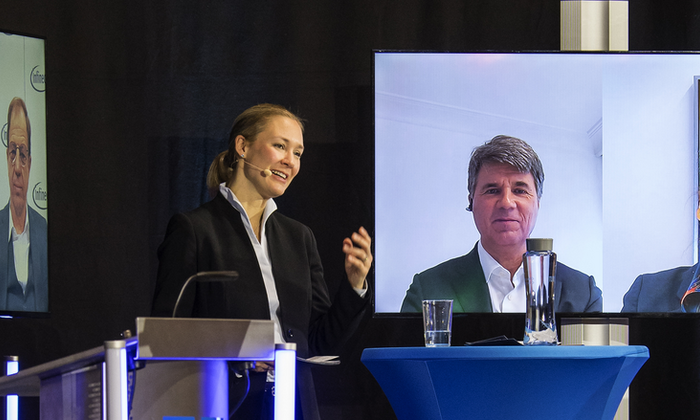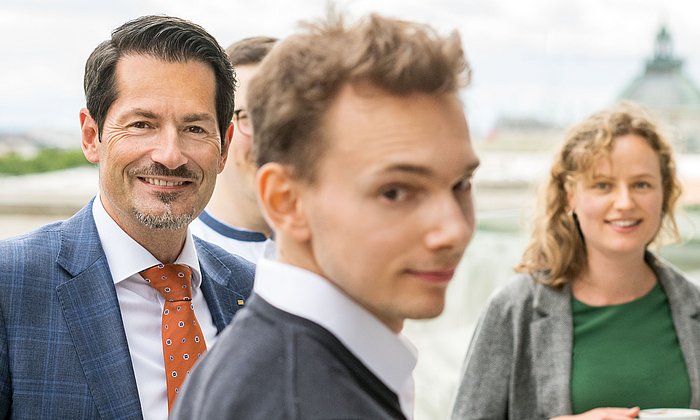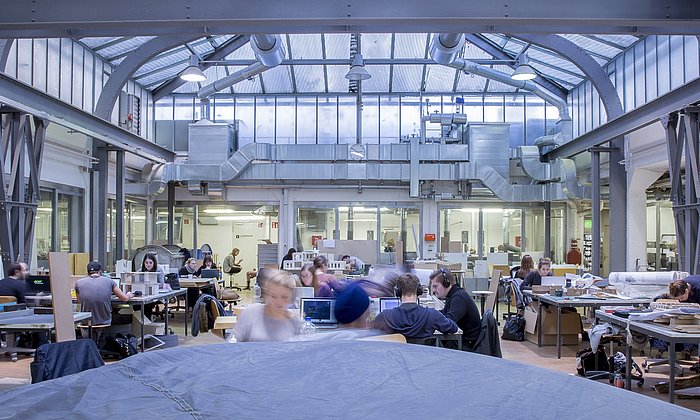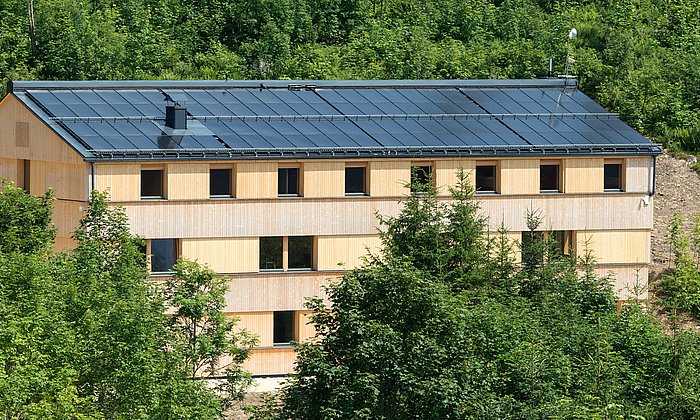Interview with Senior Vice President Gerhard Kramer on sustainability
"Sustainability is about research, respect, and responsibility"
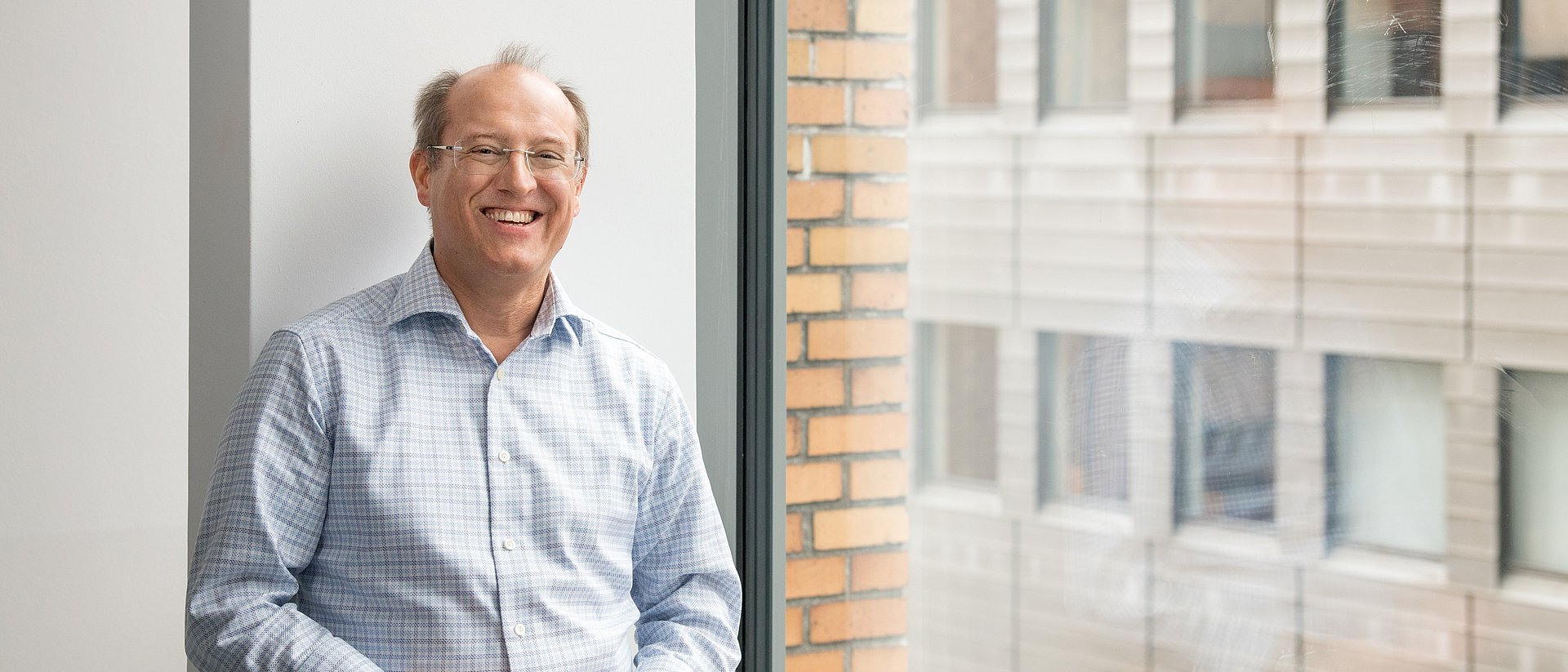
Prof. Kramer, sustainability is talked about everywhere these days – what does this word mean to you?
Sustainability is not easy to describe. It's a concept, first, that you have to think about. It's about respect – not only for the environment, but also for people. Then it's about responsibility in action. So I would describe sustainability with the following words: research, respect, and responsibility.
Respect and responsibility: How can we envision this in practice?
When it comes to sustainability, many initially think only of the environment. But there is more to it: Humanity is the central focus. Sustainability also has a social component – and an economic one. One concrete example is the topic of gender and diversity. Here the question arises: What is sustainable for a company or a university? I would say: only that which also respects the individual. For example, it would be sustainable for society to accept that every person should develop professionally in the direction of his or her own interests and strengths. Another example is internationality. Our university has become much more international in recent years. That stems from the fact that we saw a value in it. But achieving internationalization was only possible because we treat other cultures with respect. A final example is the economic aspect: How do you finance something sustainably? As a university that is largely funded by tax money, we have a great responsibility to those who pay those taxes.
“When it comes to sustainability, many initially think only of the environment. But there is more to it.”
Where does TUM stand with respect to sustainability?
Sustainability has long played a role for TUM – in many areas. I'd like to start with the topic of climate change and ecology. This is very present in the media today and is of particular interest to students. They are strongly committed to this topic at TUM: For example, they organize the lecture series on the environment and are involved in student initiatives such as the "Referat Umwelt", and the Green Office Straubing has existed since 2018. TUM supports and promotes this commitment – for example, within the framework of our Future Learning Initiative, we have given recognition to a student project called Sustainable Living Labs which aims to help other students to work out sustainable ideas for the future. We have also significantly expanded our range of courses in sustainability over the years. The great importance we place on sustainability can be seen, among other things, in the fact that we have our own campus dedicated to the topic: the TUM Campus Straubing for Biotechnology and Sustainability. But there are also a great many scientists in other departments whose research deals with questions of sustainability. Despite all of this, it can't be denied that we still have potential for improvement. Up to now, all these activities in research and teaching and on the part of the students have been fairly well distributed across the different TUM campuses and in different spheres, but they are not yet equally strongly networked everywhere.
„Sustainability has long played a role for TUM – in many areas.”—
How can we improve that?
In the future, we will be guiding our distributed initiatives and projects in a more coordinated way. We are focusing on networking and creating synergies. President Thomas Hofmann announced at the beginning of his term of office in 2019 that sustainability is a key future issue for TUM. Acting on that commitment, he launched the Sustainability Task Force and founded the Sustainability Office, which we are currently expanding. The Sustainability Office and the Sustainability Task Force are in the process of bundling activities at TUM and setting up our overall strategy. To ensure that sustainability can penetrate all areas of the university, we need everyone to be involved – students and staff, researchers and teachers, and entrepreneurs as well.
What is the mission of the Sustainability Task Force?
The Sustainability Task Force is made up of scientists and students who are very interested in the topic and who meet regularly. The head of the task force, Professor of Environmental and Climate Policy Miranda Schreurs also gathers input from her international contacts. This is important and provides new ideas – and we see best practice models from other universities. The task force can promote, motivate, and coordinate projects – but it also serves as an advisory body, for example for the Sustainability Office and thus also for the TUM Board of Management.
What is the role of the Sustainability Office?
The Sustainability Office is a staff unit that is directly linked to the TUM Board of Management through me as Senior Vice President. This shows how important the topic is to us as the university management. The central anchoring makes it easier for us to network locally, regionally, and internationally and also to act strategically within TUM. The Sustainability Office is currently taking stock of all current activities at TUM and evaluating the status quo. In addition, the office is expected to draw attention to the topic of sustainability and create awareness for it. To raise awareness of sustainability in a university with 44,000 students and nearly 11,000 employees, one staff unit and one task force are not enough. We need multipliers, ambassadors and knowledge carriers for the topic: Ambassadors of Sustainability. Only together can we sustainably shape our actions as TUM. And I would like to invite and motivate everyone to take part!
„In the future, we will be guiding our distributed initiatives and projects in a more coordinated way.”—
You mentioned research earlier. In which areas of sustainability research is TUM strong, and where are there promising approaches?
I would say that there is ongoing research in at least one sustainability topic in every discipline at TUM. Especially noteworthy are our contributions in agricultural and plant sciences on the Weihenstephan campus, in bioeconomy and biotechnology on the Straubing campus, in energy, mobility and climate research on the Garching campus, and in research on the built and planned environment at our main site in Munich.
Do you have specific examples from research?
At TUM's Friedrich N. Schwarz Research Station in Berchtesgaden, we are observing the alpine ecosystem. At Schneefernerhaus on the Zugspitze we carry out climate and environmental research. Research in the food sector is also central. There researchers are investigating questions such as: How do we produce and consume food, and what is the impact of our practices on the environment and other countries? Our hobbyhorses are of course engineering research and technologies. They give us, for example, solutions to the question of how we can use energy more efficiently. We also have expertise in the planning and construction of sustainable buildings. Examples of this are environmentally and human-friendly houses made from the renewable raw material wood. The area of "circular economy" is also important and promising. This deals with how we can optimize the life cycle of products, make supply chains more efficient, or recycle materials, to give a few examples. Research is being carried out in many disciplines at TUM. We have a great deal of know-how, for example, when it comes to materials – but also in management. Industry has already expressed interest in the topic of the circular economy. Since sustainability touches on so many topics and aspects of life, it also affects the entire breadth of research and all of the disciplines at our university. We want to better network this expertise in the future, because sustainability requires an interdisciplinary approach and, above all, thinking beyond pure engineering and technology.
A number of courses on the topic of sustainability are now being offered at TUM. What are these programs about?
These courses in particular are very interdisciplinary – they shed light on the topics covered from many perspectives. In terms of "human-centered engineering," we want to educate young people who not only know the technical side of their subject, but also are conscious of the ethical and social implications. The humanities and social sciences play an important role in this. The fact that we are increasingly integrating these into our curricula – and also our research – is something special for a technical university. In November 2020, for example, we started the international engineering degree program EuroTeQ Engineering University, which trains engineers – across disciplines, national borders, and institutions – to act responsibly.
„Our goal is that we should always take the requirements of nature into account in our actions, deal responsibly with resources, and place a high priority on protecting people and the environment.”—
We have now talked about the areas of sustainability where TUM is already strong. Where should the journey go from here?
Our goal is that we should always take the requirements of nature into account in our actions, deal responsibly with resources, and place a high priority on protecting people and the environment. We want to incorporate the latest research findings directly into our collaborations, into the curricula of our degree programs, and into technology companies, as well as into advanced training and continuing education programs at our new Institute of LifeLong Learning. Universities are exactly the right environment to analyze processes and requirements for a sustainable society and to develop recommendations for action. When I think about TUM as an institution, it is very important that we pursue a holistic approach that includes all areas of our university. But sustainability is not just a challenge for one university or one country. It is a global issue and will play an increasingly important role in the future.
Prof. Gerhard Kramer studied electrical engineering at the University of Manitoba and did his doctoral work at ETH Zurich. Subsequently the German-Canadian worked as an engineer for a Swiss information technology company and at Bell Labs in the United States. In 2009 he was appointed to a professorship at University of Southern California. One year later, he became a Humboldt professor and chair of the Institute for Communications Engineering at TUM. Since 2019 he has served as Senior Vice President for Research and Innovation.
Technical University of Munich
Corporate Communications Center
- Lisa Pietrzyk
- lisa.pietrzyk@tum.de
- presse@tum.de
- Teamwebsite
![[Translate to en:]](/fileadmin/_processed_/0/f/csm_20210107_Prof_Gerhard_Kramer_AE-99_324287c513.jpg)
![[Translate to en:]](/fileadmin/_processed_/5/e/csm_20210107_Prof_Gerhard_Kramer_AE-39_9add0463a2.jpg)
